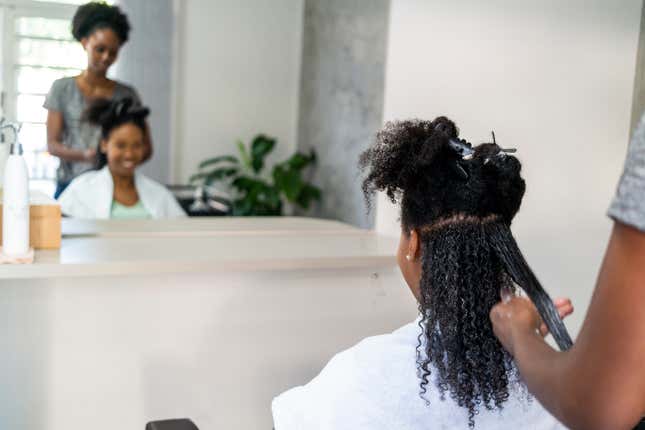
Throughout history, Black women have had a complicated love affair with chemical hair straighteners. We looked forward to leaving the salon every two to three months with a silky straight head of hair (even if our scalps burn like hell in the process).
However, that love waned as we learned that the perm had the potential to do more harm than good: According to a 2022 study of women ages 35-74 from the National Institutes of Health, women who used chemical straightening products more than four times per year were more than twice as likely to develop uterine cancer than those who did not.
As information about the dangers of hair chemicals spreads, more women are opting for natural styling methods. There are also pending lawsuits against L’Oreal, Revlon and other heavy hitters in the beauty industry, claiming a failure to warn customers about the potential dangers associated with their products.
But as American women eschew the chemicals, they’re on the rise in some African countries: Sales of chemical hair relaxers have dropped nearly ten percent in the United States between 2017 and 2022, according to Euromonitor, but three of the top five countries for sales growth of chemical relaxers between 2017 and 2022 (Tunisia, Kenya and Cameroon) are located in Africa.
“People still use hair relaxers as much as they did in the past,” Joseph Kiemo of Kiemo Hair and Beauty Studio in Nairobi told The Examination.
But there is hope that information on the dangers of relaxers will reach more African women. According to Cape Town, South Africa-based Leshme de Bruyn, owner of natural hair care line Miss L – Embrace My Roots, more younger African women are considering natural hair styles.
“Younger people are saying, This is the hair I’ve been born with, and I’m going to embrace it,’’’ she told The Examination.





